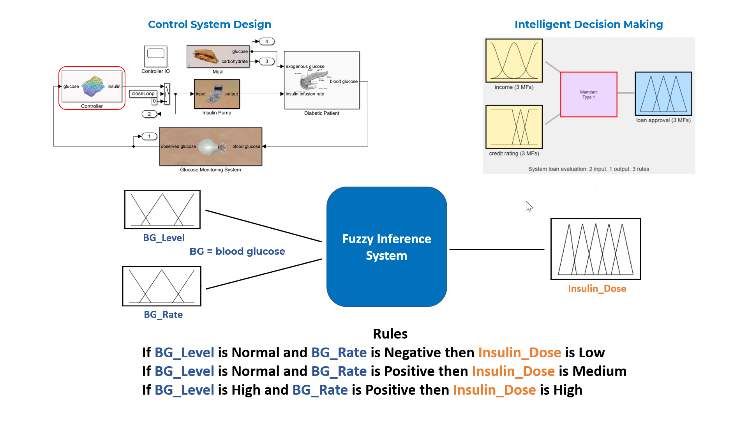Explorando la lógica difusa: Artículo en inglés

Introduction
Fuzzy logic is a fascinating area of study that has been gaining popularity in recent years. As the name suggests, it involves logic that is not black and white, but rather fuzzy and ambiguous. In this article, we will explore the basics of fuzzy logic and its applications.
What is Fuzzy Logic?
Fuzzy logic is a type of logic that deals with uncertain or imprecise information. It is based on the idea that things can be partially true or partially false, rather than being strictly one or the other. In traditional logic, a statement is either true or false, but in fuzzy logic, a statement can be any degree of true or false.
This allows for a more nuanced approach to decision making, as it takes into account the fact that many real-world problems are not clear-cut. Fuzzy logic is often used in fields such as artificial intelligence, control systems, and decision-making.
How Does Fuzzy Logic Work?
Fuzzy logic works by assigning values to a statement based on how true or false it is. These values are typically represented on a scale from 0 to 1, with 0 meaning completely false and 1 meaning completely true. For example, if we were to say that a person is tall, we could assign a value of 0.8 to that statement, indicating that it is mostly true but not entirely.
Fuzzy logic also allows for the use of linguistic variables, such as "very tall" or "somewhat tall," which can further refine the degree of truth or falsity of a statement.
Applications of Fuzzy Logic
Fuzzy logic has a wide range of applications in various fields. Here are just a few examples:
Artificial Intelligence
Fuzzy logic is often used in artificial intelligence to help machines make decisions based on uncertain or imprecise information. For example, a self-driving car may use fuzzy logic to determine how to react to a pedestrian crossing the road.
Control Systems
Fuzzy logic is also commonly used in control systems, such as in heating and cooling systems or in industrial processes. By using fuzzy logic to control these systems, they can adapt to changing conditions in real-time.
Decision-Making
Fuzzy logic can also be used in decision-making processes, such as in financial analysis or risk assessment. By taking into account uncertain or imprecise information, fuzzy logic can help make more accurate and informed decisions.
Advantages and Disadvantages of Fuzzy Logic
Like any technology, fuzzy logic has both advantages and disadvantages.
Advantages
- Fuzzy logic can handle uncertain or imprecise information, which is common in many real-world scenarios.
- It allows for a more nuanced approach to decision making.
- Fuzzy logic can be easily combined with other technologies, such as artificial intelligence or control systems.
Disadvantages
- Fuzzy logic can be difficult to understand and implement.
- It can be computationally expensive, especially when dealing with large amounts of data.
- Fuzzy logic can sometimes produce unexpected results, which can be difficult to interpret.
Conclusion
Fuzzy logic is a powerful tool that has many applications in various fields. By taking into account uncertain or imprecise information, it allows for a more nuanced approach to decision making. While it has its advantages and disadvantages, its potential for improving real-world processes makes it an area of study that is worth exploring further.
FAQs
What is the difference between fuzzy logic and traditional logic?
Traditional logic deals with statements that are either true or false, while fuzzy logic allows for statements that are partially true or partially false.
What are some common applications of fuzzy logic?
Fuzzy logic is commonly used in artificial intelligence, control systems, and decision-making.
What are the advantages of fuzzy logic?
Fuzzy logic can handle uncertain or imprecise information, allows for a more nuanced approach to decision making, and can be easily combined with other technologies.
What are the disadvantages of fuzzy logic?
Fuzzy logic can be difficult to understand and implement, can be computationally expensive, and can sometimes produce unexpected results.
Is fuzzy logic used in everyday life?
Yes, fuzzy logic is used in many everyday applications, such as in heating and cooling systems and in financial analysis.
Deja una respuesta